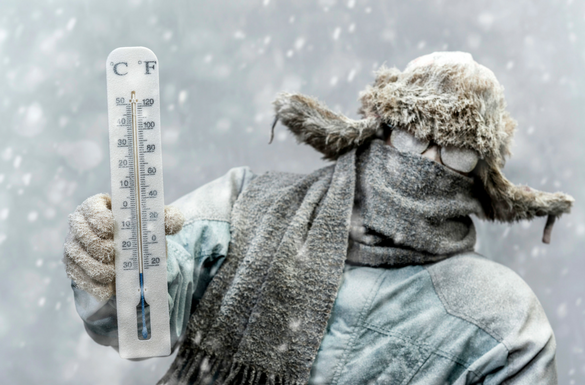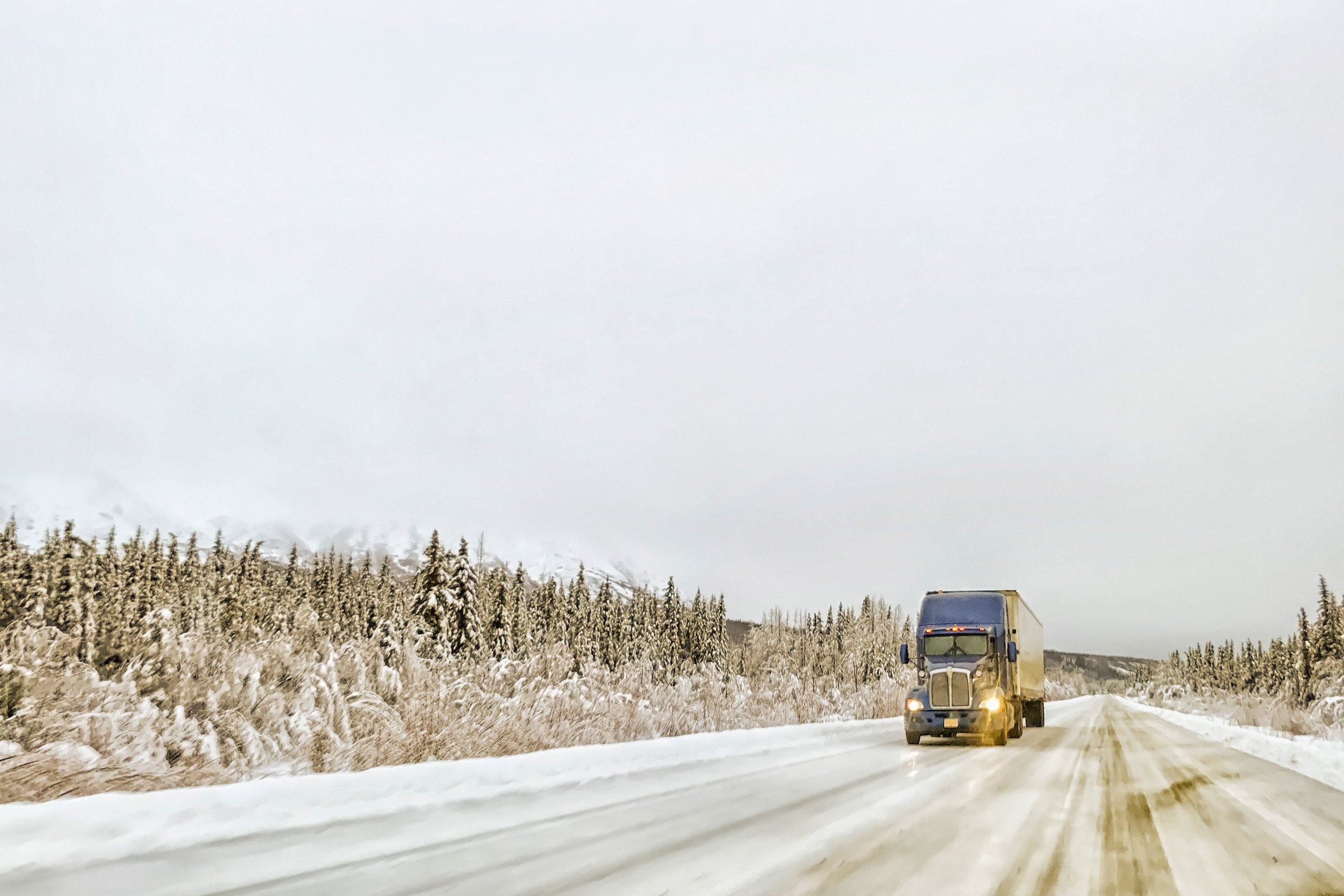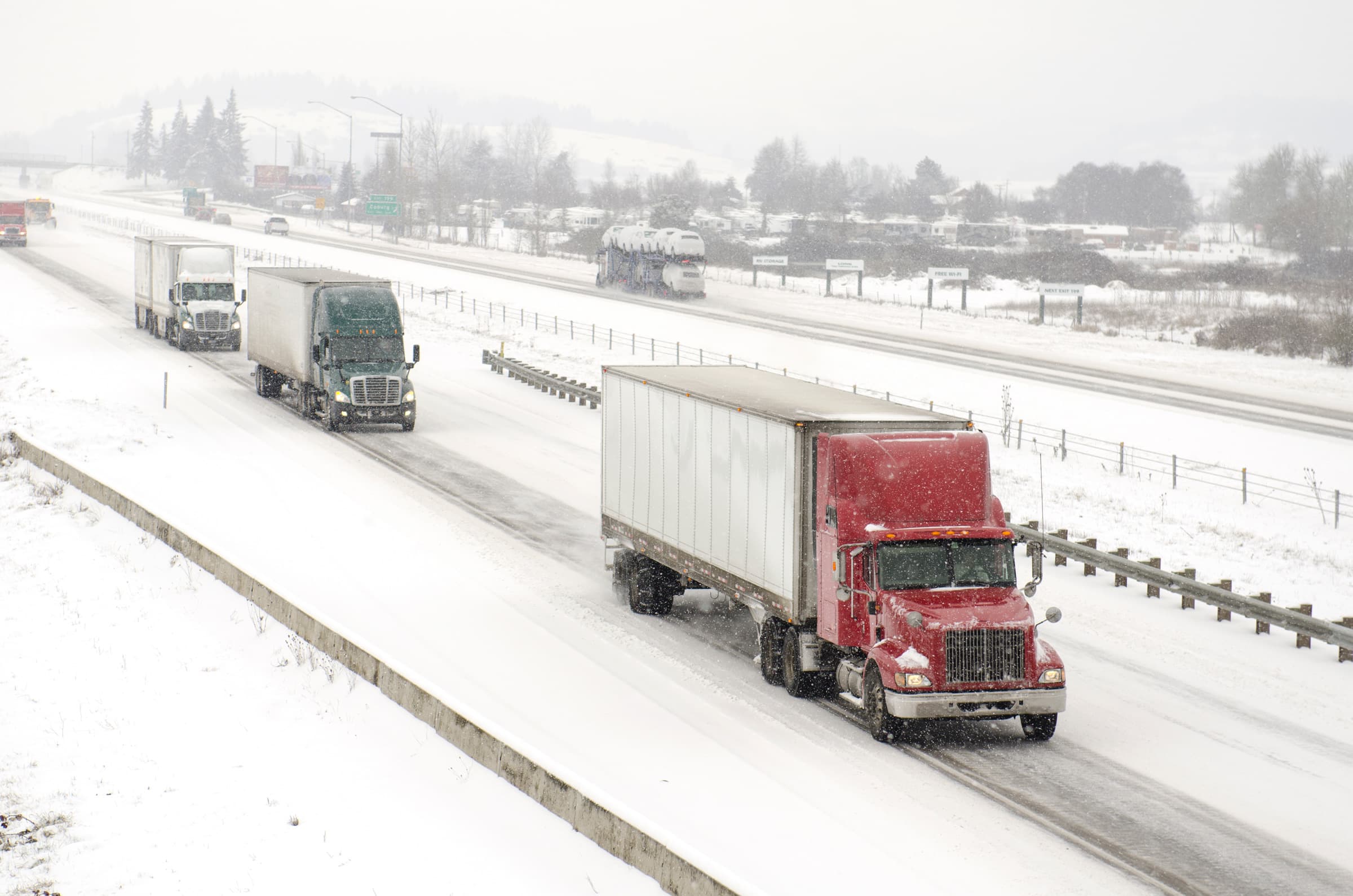Winter Safety

For most of the country, winter brings frigid temperatures, slippery road conditions, and treacherous walking surfaces. In the event of a possible roadside emergency, you do not want to risk frostbite or hypothermia. The key to protecting yourself is to be able to recognize the hazards that can lead to winter-related injuries and illnesses and know how to protect yourself.
Recognize the Hazards
Environment/equipment
- Adverse weather
- Frigid temperatures
- Snow
- Ice
- Freezing rain
- High winds
- Blizzards
- Whiteout conditions
- Sun glare
- Carbon monoxide poisoning
- Sunburn
- Longer hours of darkness
- Slower-moving vehicles
- Inoperable equipment (heater, defroster, wiper blades, etc.)
- Dirty windows, mirrors, or windshield
Personal behaviors
- Poor planning
- Failing to wear proper winter clothing
- Improper vehicle inspection
- Driving while fatigued
- Failing to warm up muscles before removing snow from vehicle
- Wearing improper footwear
Know the Defense
Stay informed
- Monitor weather reports
- Communicate regularly with dispatch
Plan ahead
- Pack cold weather clothing
- Pack extra food and water
- Pack extra blankets
- Pack waterproof gloves
Vehicle maintenance
- Conduct vehicle inspections
- Use a carbon monoxide detector
- Pack additional safety items
- Tire chains
- Reflective vest
- Flashlight
- Kneeling pad
- Washer fluid
- Anti-gel
Personal safety
- Dress in layers
- Wear footwear with slip-resistant soles
- Wear a hat, gloves, and winter coat, even if outside for short periods
- Slow down; do not hurry
- Wear sunglasses to reduce sun glare
- Get plenty of rest
- Wear sunscreen when outside
Note: These lists are not intended to be all-inclusive.
The information in this article is provided as a courtesy of Great West Casualty Company and is part of the Value-Driven® Company program. Value-Driven Company was created to help educate and inform insureds so they can make better decisions, build a culture that values safety, and manage risk more effectively. To see what additional resources Great West Casualty Company can provide for its insureds, please contact your safety representative, or click below to find an agent.
© Great West Casualty Company 2018. The material in this publication is the property of Great West Casualty Company unless otherwise noted and may not be reproduced without its written consent by any person other than a current insured of Great West Casualty Company for business purposes. Insured should attribute use as follows: “© Great West Casualty Company 2018. Used with permission by Great West Casualty Company.”
This material is intended to be a broad overview of the subject matter and is provided for informational purposes only. Great West Casualty Company does not provide legal advice to its insureds, nor does it advise insureds on employment-related issues. Therefore, the subject matter is not intended to serve as legal or employment advice for any issue(s) that may arise in the operations of its insureds. Legal advice should always be sought from the insured’s legal counsel. Great West Casualty Company shall have neither liability nor responsibility to any person or entity with respect to any loss, action, or inaction alleged to be caused directly or indirectly as a result of the information contained herein.




